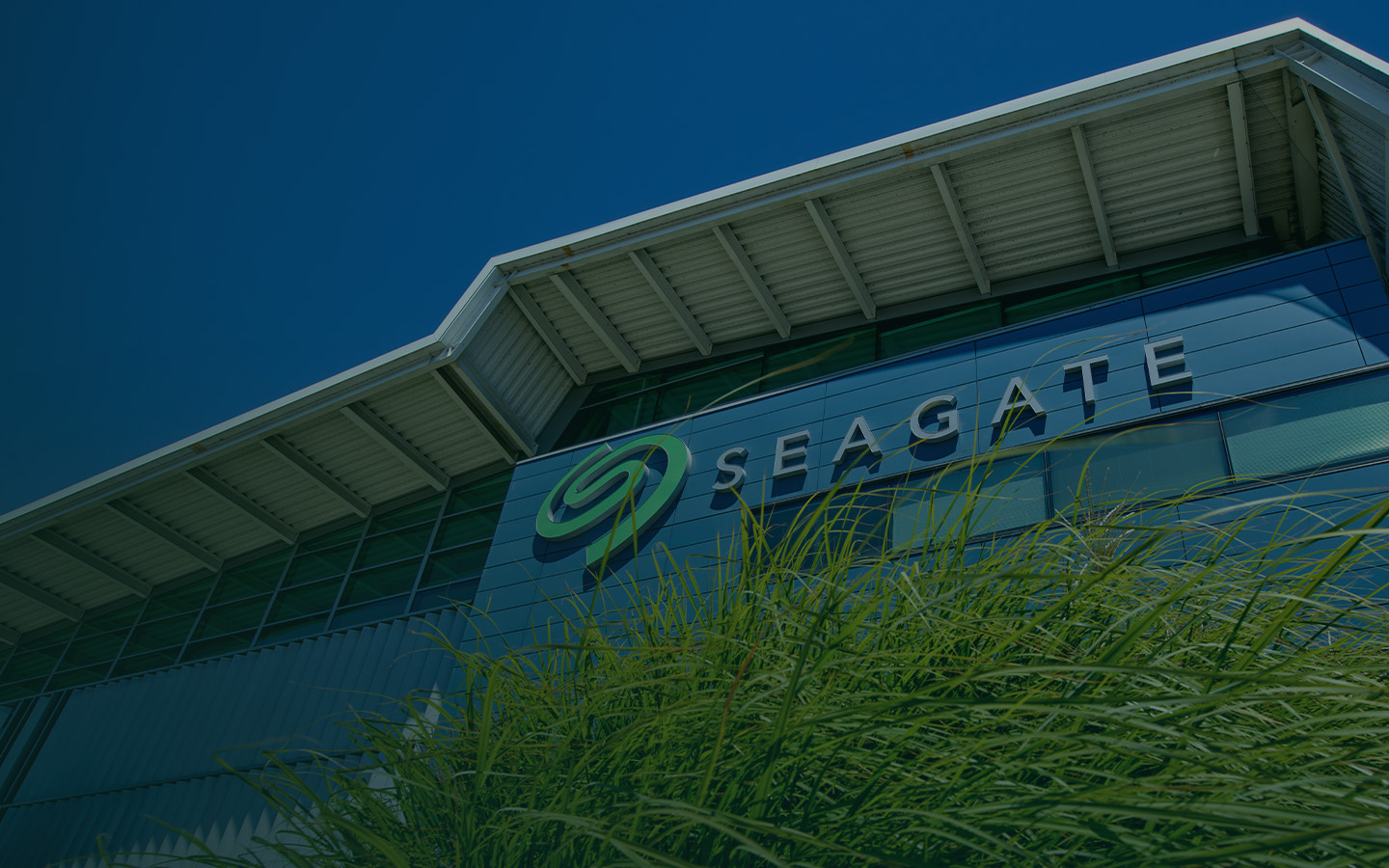Seagate on track for 100TB HDDs by 2030 — claims current top drive will triple in capacity in 5 years
Seagate's existing HAMR roadmap slightly mismatches the new 100TB claims

Seagate will bring a 100-terabyte HDD to market by 2030, according to comments from its CCO. In an interview with CNBC, Chief Commercial Officer BS Teh shared Seagate's new 100 TB goal, citing demand from the AI and HPC markets driving the great leap in capacity.
"This is a key enabler for the industry to be able to deliver the storage capacity that the market needs," shared Teh when asked about the demand for 100TB units. "There's no other technology that's able to produce this capacity of storage technology to meet the growth that the market needs."
Seagate's current largest hard drive by capacity is the Exos Mozaic 3+, a 36TB drive released this year and available only to select customers. The Moziac line uses HAMR (heat-assisted magnetic recording) technology, briefly heating recording regions and reducing the intensity required to write data to discs, greatly improving storage density.
The Mozaic contains ten glass data platters, which Seagate has produced in capacities of up to 6TB each, making Seagate's current theoretical size limit 60TB. But the current corporate roadmap does not stretch this far, with Seagate in January saying it expects its next platform, Mozaic 4+, to bring 40TB+ HDDs in 2026, and the following Mozaic 5+ platform to bring 50TB drives in 2028 or later.
This falls well short of Seagate's 2017 roadmap, which aimed for 50TB hard drives by 2026. As a result, it could be wise to take claims of 100TB by 2030 with a grain of salt, unless Seagate has plans beyond HAMR after Mozaic 5+.
Seagate will also have energy conservation interests breathing down its neck in its race to boost capacity. As the AI market continues to demand an ever greater share of the energy grid, energy efficiency will likely be a more serious concern than consolidating capacity for enterprise users.
Teh claims that Seagate's race to 100TB is keeping conservation on the mind. "With the product itself, we design it to have lower power per terabyte, or to have higher density of the device itself, such that when you actually integrate that product into your data center, you require less space, less power, less everything, because you're using your fewer drives to fulfill that capacity." He also claims that Seagate is pushing renewable energy sources to power its production lines.
Get Tom's Hardware's best news and in-depth reviews, straight to your inbox.
Whether the fires of AI and enterprise needs are enough to push Seagate through the goalposts by 2030 is yet to be seen. While the firm consistently releases the market's largest capacity drives, its history of falling short of over-enthusiastic stretch goals casts some doubt on the bullish claims of its C-suite.
Follow Tom's Hardware on Google News to get our up-to-date news, analysis, and reviews in your feeds. Make sure to click the Follow button.

Sunny Grimm is a contributing writer for Tom's Hardware. He has been building and breaking computers since 2017, serving as the resident youngster at Tom's. From APUs to RGB, Sunny has a handle on all the latest tech news.
-
Stomx Yea, yea, 50, 100, 200TB, doubling, tripling... Noticed no one in HDD or SSD business ever promised so far that the warranty period will double or triple ? Or failures rate will 2x or 3x drop ?Reply -
naryfa True, plus the fact that the throughput isn't going up by much. Unless perhaps, they put enough heads and needles to fully saturate the connection, or jump to NVMe plugs, Today, some EDSFF SSDs write at 10GB/s. From the fastest SATA HDDs we get ~286MB/s, ~524MB/s from SAS. Files are only getting bigger and bountiful. So I don't know, three sets of heads, different port type and lower failure rates maybe? The HDDs are workhorses, I'll give them that, but the speed and throughput are quite pressing.Reply -
George³ Good Old 2017: "Dude where is my 100TB hard drive?"Reply
2014 – 100TB drive by 2025 http://techon.nikkeibp.co.jp/english/NEWS_EN/20150826/433240/?n_cid=nbptec_tecrs
-
SomeoneElse23 Reply
Drives do tend to get faster with larger capacities. The 16TBs are atleast 2x faster than the 8TBs.naryfa said:True, plus the fact that the throughput isn't going up by much. Unless perhaps, they put enough heads and needles to fully saturate the connection, or jump to NVMe plugs, Today, some EDSFF SSDs write at 10GB/s. From the fastest SATA HDDs we get ~286MB/s, ~524MB/s from SAS. Files are only getting bigger and bountiful. So I don't know, three sets of heads, different port type and lower failure rates maybe? The HDDs are workhorses, I'll give them that, but the speed and throughput are quite pressing.
Hopefully it continues with the much much larger drives. There's still lots of room in the SATA spec for more speed. -
SomeoneElse23 Reply
I only buy drives with 5 year warranties.Stomx said:Yea, yea, 50, 100, 200TB, doubling, tripling... Noticed no one in HDD or SSD business ever promised so far that the warranty period will double or triple ? Or failures rate will 2x or 3x drop ?
The warranty is how long the manufacturer expects the product to last.
Still, your point is valid. A 10 year warranty would be pretty cool. Not sure it's realistic with all that movement, heat, and vibration though. -
jp7189 Reply
SAS 12Gb/s is pretty common, and I don't think they'll saturate that anytime soon. There are some interesting hdd backplanes that use nvme to the host, and i thought i remember an announcement of a hdd that uses native nvme. Though I would expect that's more about easing integration than increase performance.naryfa said:True, plus the fact that the throughput isn't going up by much. Unless perhaps, they put enough heads and needles to fully saturate the connection, or jump to NVMe plugs, Today, some EDSFF SSDs write at 10GB/s. From the fastest SATA HDDs we get ~286MB/s, ~524MB/s from SAS. Files are only getting bigger and bountiful. So I don't know, three sets of heads, different port type and lower failure rates maybe? The HDDs are workhorses, I'll give them that, but the speed and throughput are quite pressing.